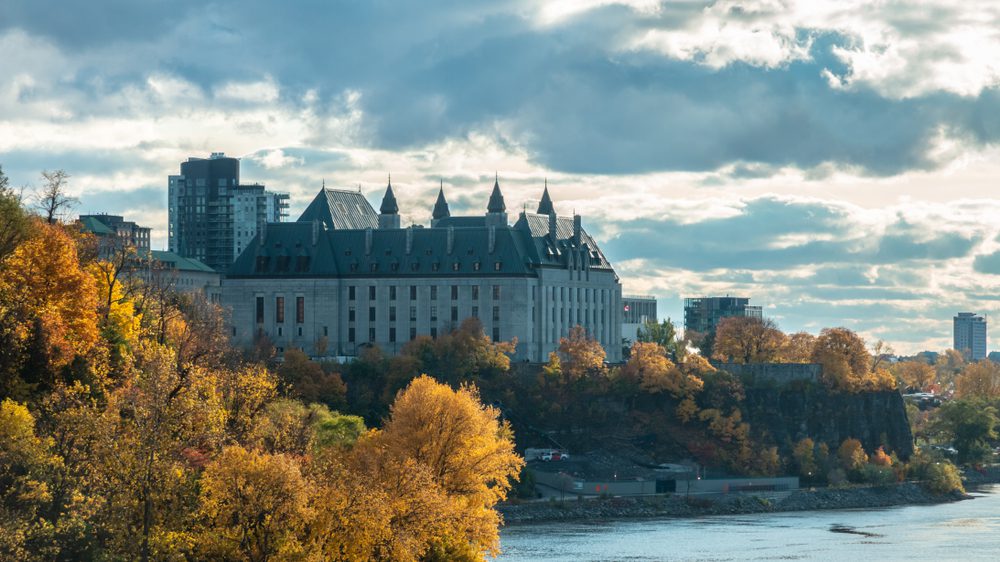
British Columbia’s Court System Explained: A Comprehensive Guide
The Ultimate Resource for Understanding the Judicial Structure, Functioning, and Access to Justice in British Columbia
Welcome to our comprehensive guide to the court system in British Columbia (BC), Canada. Whether you’re a legal professional, a party to a lawsuit, or simply curious about how the justice system works, this article will provide a clear and practical understanding of BC’s court system. We aim to demystify the complexities of the judicial structure, explain the roles of different courts, and guide you through the process of accessing justice in BC.
Understanding the Court System
In BC, the court system comprises three main courts: the Provincial Court, the Supreme Court, and the Court of Appeal. Each court has its own jurisdiction, handles specific types of cases, and plays a crucial role in the administration of justice. It’s important to note that federal courts, such as the Federal Court and the Tax Court, operate separately and do not fall under the BC court system. There is also the Civil Resolution Tribunal (CRT), Canada’s first online tribunal that is intended to be used by self-represented individuals in civil disputes of up to $5,000, and other claim types under the CRT’s jurisdiction.
Provincial Court
The Provincial Court is the entry point for most legal matters in BC. It is the first trial court level and has jurisdiction over most criminal cases, about half of family law cases, traffic and bylaw matters, small claims (claims between $5001 and $35,000), and most cases involving young offenders. It consists of about 150 judges appointed by the provincial government, working in more than 80 locations throughout the province. The Provincial Court does not deal with divorce or division of family property, civil lawsuits for more than $35,000, or trials with juries. Most appeals of its decisions go to the BC Supreme Court. Further appeals of Provincial Court decisions may be heard by the BC Court of Appeal, and the Supreme Court of Canada.
Court of Appeal

BC Supreme Court
The Supreme Court is the superior trial court in BC. It has jurisdiction over most civil and criminal matters. It handles complex cases involving significant legal issues and monetary amounts. The BC Supreme Court also serves as an appellate court for appeals from the Provincial Court in civil and criminal matters and arbitrations. A BC Supreme Court decision may be appealed to the Court of Appeal.
The Civil Resolution Tribunal
The Civil Resolution Tribunal (CRT) is Canada’s first online tribunal. The CRT has jurisdiction over claims related to intimate images sharing, motor vehicle accidents, small civil claims of up to $5,000, strata property, and societies and co-operatives. The CRT is intended to be accessible to self-represented individuals and the CRT website provides resources and information to assist individuals in resolving disputes in an accessible, affordable way.
The Role of the Federal Government
While the provincial government is largely responsible for the administration of justice within BC, the federal government also plays a significant role in the court system. The federal government is responsible for organizing and maintaining federal courts, such as the Federal Court, the Tax Court, and the Supreme Court of Canada. The federal government also passes laws within its constitutional jurisdiction, such as criminal law and divorce.
Laws in Canada: Constitutional, Statute, and Common Law
The Canadian legal system is based on three primary sources of law: constitutional law, statute law, and common law. These sources guide judges in decision-making and provide a framework for resolving disputes.
Constitutional Law
Constitutional law is the supreme law of Canada. It sets out the fundamental rights and freedoms of individuals and defines the structure and powers of the federal and provincial governments. All other laws must comply with the Canadian Constitution, which includes the Canadian Charter of Rights and Freedoms.
Statute Law
Statute law refers to laws passed by the government. Both the Parliament of Canada and the BC Legislature have the authority to pass statutes, within their constitutional powers. Statutes, also known as acts or legislation, cover various areas of law and are often accompanied by regulations that provide detailed guidelines on how the statutes should be applied. Regulations are also considered primary law and are binding just like statutes, but regulations are often passed by the government of the day without debate in Parliament or the legislature.
Common Law
The common law is a body of law developed through judicial decisions and precedents. It fills gaps where statutes do not specifically address a particular issue or when a statute is unclear. Judges rely on common law principles to interpret statutes and make decisions in cases without applicable statutes. The common law is viewed as flexible and evolves to adapt to societal changes.
The Functioning of the Courts
The common law is a body of law developed through judicial decisions and precedents. It fills gaps where statutes do not specifically address a particular issue or when a statute is unclear. Judges rely on common law principles to interpret statutes and make decisions in cases without applicable statutes. The common law is viewed as flexible and evolves to adapt to societal changes.
Provincial Court Procedures
The Provincial Court follows specific procedures for different types of cases. For criminal matters, the court ensures that the accused is informed of the charges, can present a defence, and receives a fair trial. In family law cases, the court focuses on resolving disputes related to child custody and support. Small claims cases are heard in a simplified and expedited manner to provide accessible justice for individuals seeking compensation for small monetary claims.
Supreme Court Procedures
The Supreme Court handles complex civil and criminal matters. Litigants are required to follow strict timelines and adhere to the rules of evidence. The court engages in case management to streamline the litigation process, facilitate settlement discussions, and ensure that cases proceed efficiently.

Court of Appeal Procedures
The Court of Appeal primarily deals with appeals from lower courts. Parties seeking to appeal a decision must follow strict guidelines and meet specific criteria to have their case heard. The Court of Appeal reviews the legal arguments made in the lower court, and its decisions largely focus on matters of law rather than the facts of the case.
Access to Justice in BC
Access to justice is an important element of the Canadian legal system. Access to justice is vital in ensuring that individuals have the opportunity to seek legal remedies and have their disputes resolved in a fair and timely manner. BC has implemented various initiatives to enhance access to justice and support individuals facing barriers in navigating the legal system, such as lawyer referral numbers, legal aid, and duty counsel.
Self-Represented Litigants
The courts recognize that not everyone can afford legal representation. Self-represented litigants are individuals who represent themselves in court. The Provincial Court and the BC Supreme Court provide resources and assistance to self-represented litigants, such as self-help guides, information sessions, and duty counsel services.
Legal Aid
Legal aid programs aim to provide access to legal services for individuals who cannot afford a lawyer. In BC, the Legal Services Society operates a legal aid program that offers financial assistance and legal representation to eligible individuals in certain cases, such as criminal, child protection and family law matters, and some immigration, mental health, and prison law issues.
Alternative Dispute Resolution
Alternative dispute resolution methods, such as mediation and arbitration, allow parties to resolve their disputes outside the traditional court system. These processes can be less formal, less adversarial, and more cost-effective than going to court. Mediators and arbitrators help facilitate negotiations and assist parties in reaching mutually acceptable resolutions.
Conclusion
Understanding the court system in British Columbia is essential for anyone seeking justice or involved in legal matters. By familiarizing yourself with the structure, roles, and procedures of the Civil Resolution Tribunal, Provincial Court, BC Supreme Court, and Court of Appeal, you can confidently navigate the legal process. Remember that access to justice is a fundamental principle, and various resources and support systems are in place to assist individuals in pursuing legal remedies. Whether representing yourself or seeking legal representation, the BC court system is designed to ensure fairness, and impartiality, and to uphold the rule of law. We would be happy to discuss and evaluate your situation. The first consultation is usually free, and we can work on a contingency basis, where appropriate. Call us today at 250-381-4040.
Please note: This article is for informational purposes only and does not constitute legal advice. For specific legal issues, consult a qualified legal professional.
Share This





